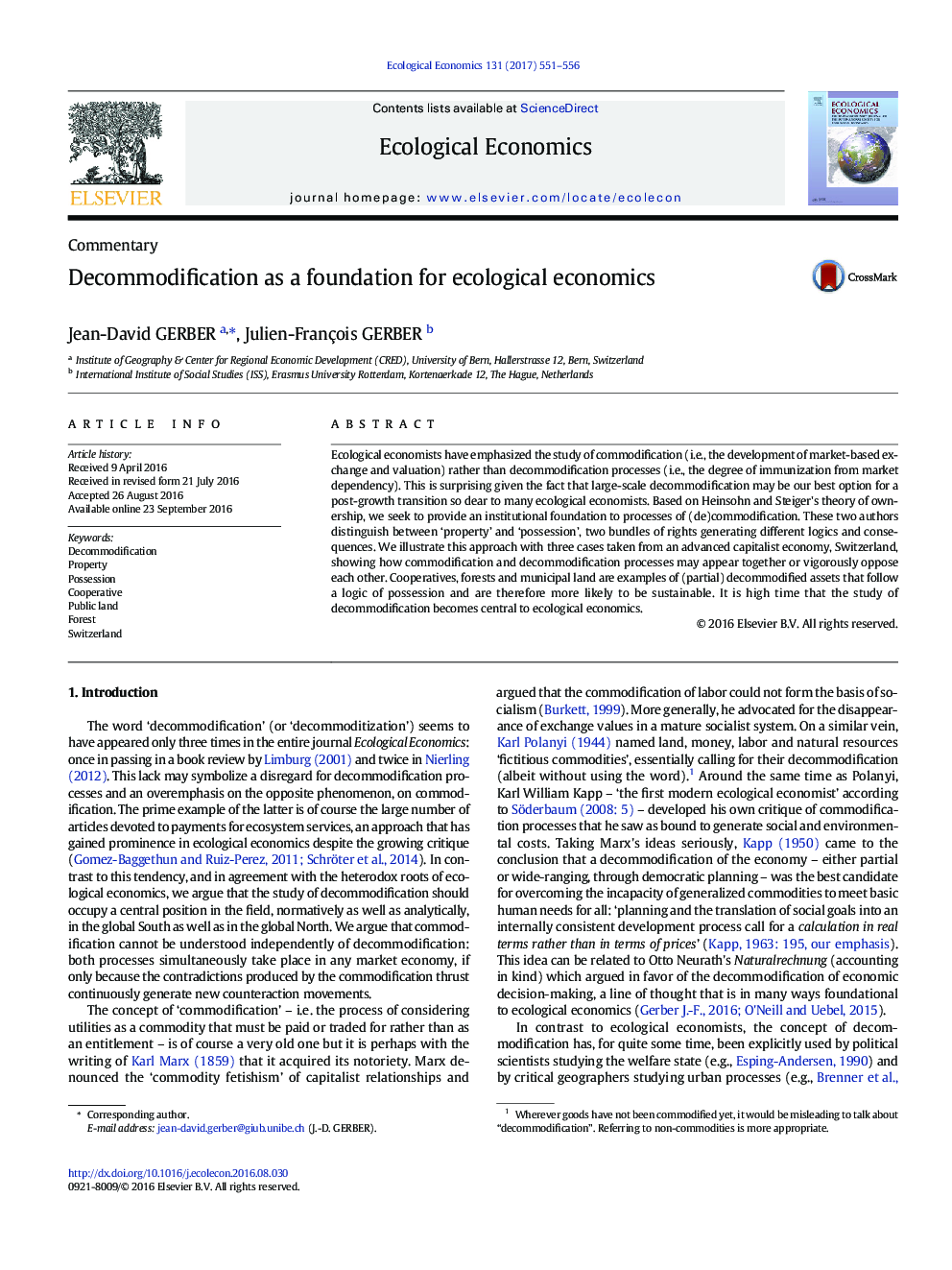| کد مقاله | کد نشریه | سال انتشار | مقاله انگلیسی | نسخه تمام متن |
|---|---|---|---|---|
| 5048849 | 1476348 | 2017 | 6 صفحه PDF | دانلود رایگان |
- Decommodification should be a foundation for ecological economics.
- Ecological economists have focused on commodification rather than decommodification.
- The distinction possession/property is useful to conceptualize decommodification.
- Decommodification may be our best option for a post-growth transition.
Ecological economists have emphasized the study of commodification (i.e., the development of market-based exchange and valuation) rather than decommodification processes (i.e., the degree of immunization from market dependency). This is surprising given the fact that large-scale decommodification may be our best option for a post-growth transition so dear to many ecological economists. Based on Heinsohn and Steiger's theory of ownership, we seek to provide an institutional foundation to processes of (de)commodification. These two authors distinguish between 'property' and 'possession', two bundles of rights generating different logics and consequences. We illustrate this approach with three cases taken from an advanced capitalist economy, Switzerland, showing how commodification and decommodification processes may appear together or vigorously oppose each other. Cooperatives, forests and municipal land are examples of (partial) decommodified assets that follow a logic of possession and are therefore more likely to be sustainable. It is high time that the study of decommodification becomes central to ecological economics.
Journal: Ecological Economics - Volume 131, January 2017, Pages 551-556
